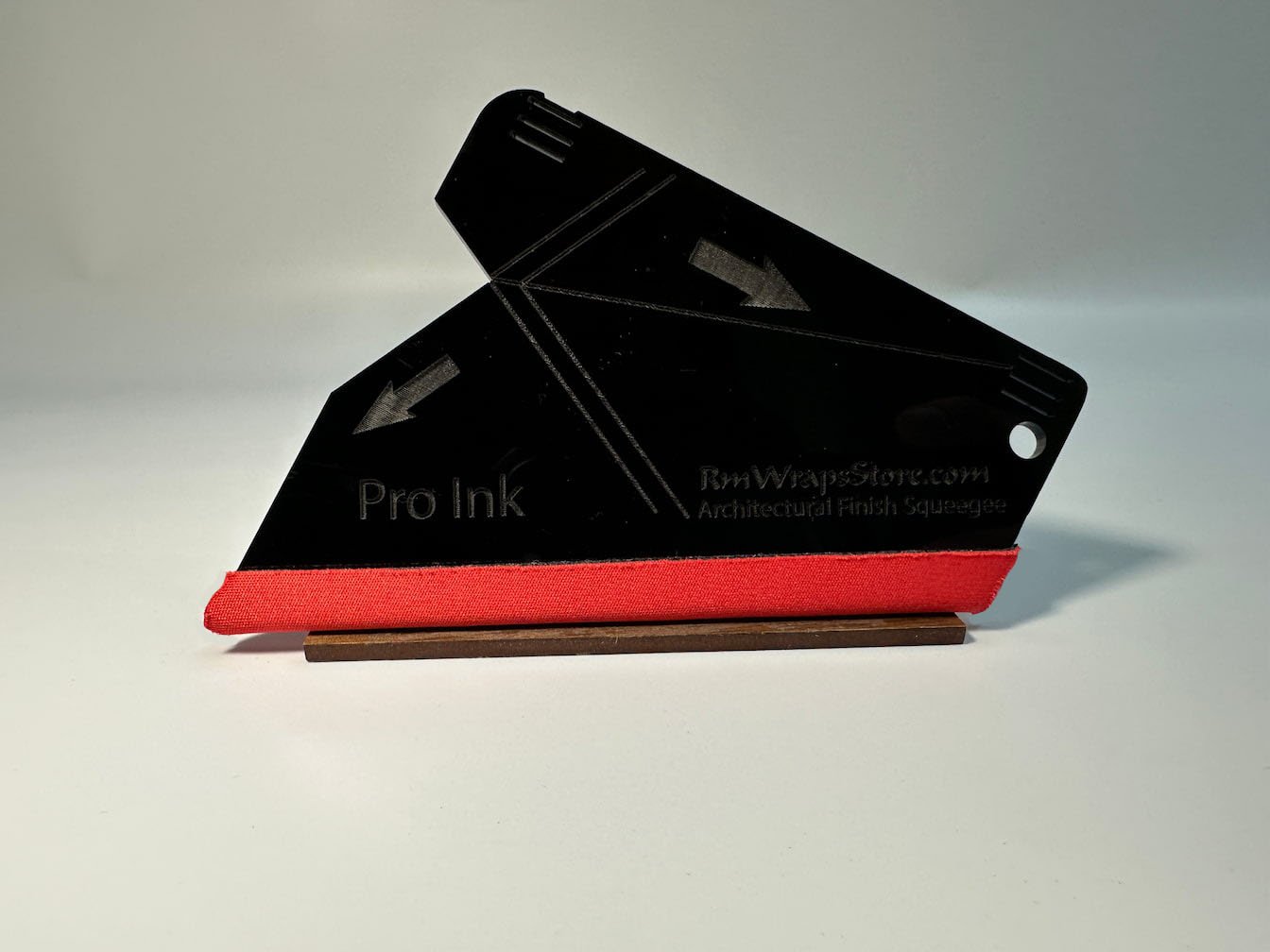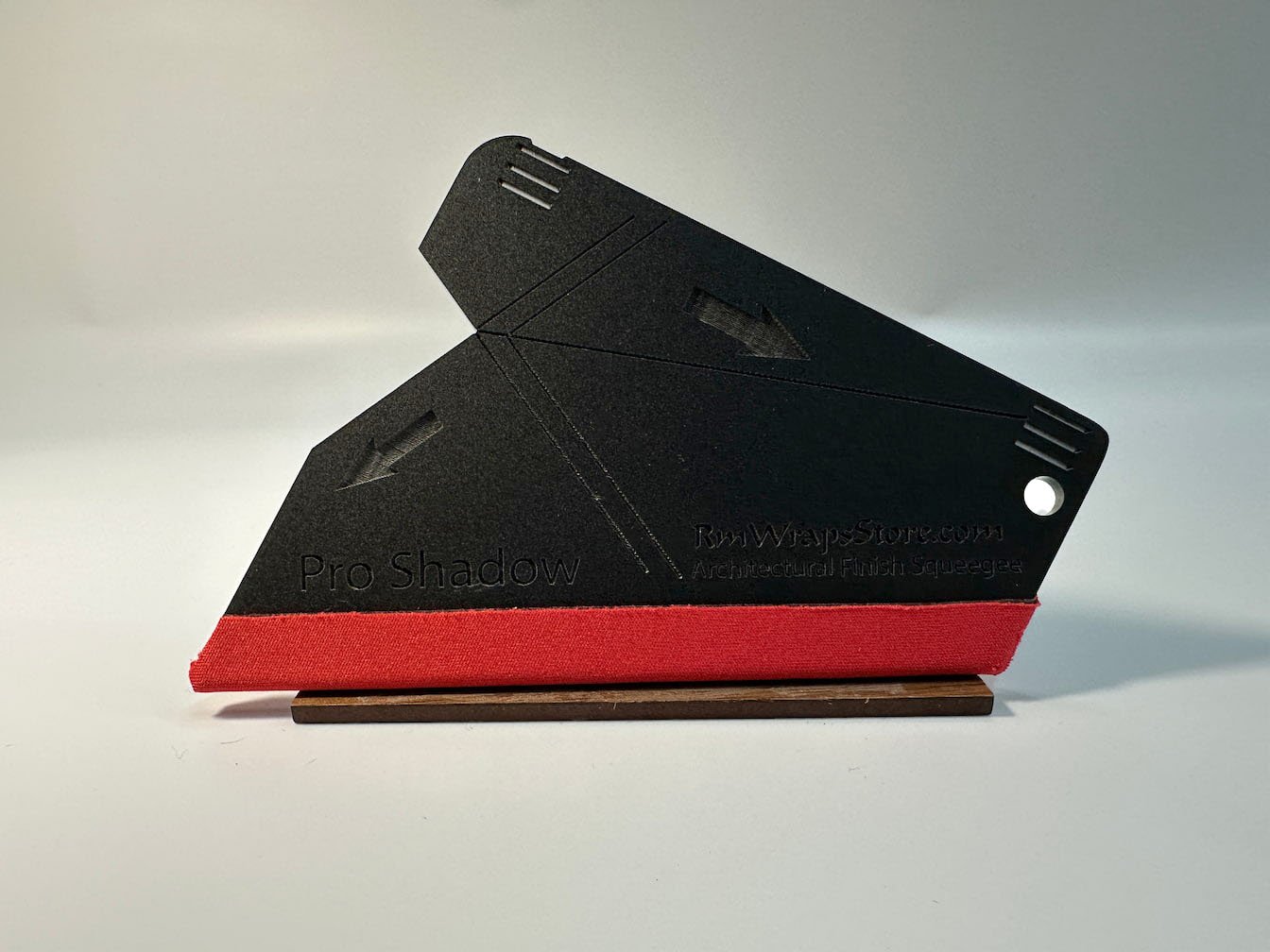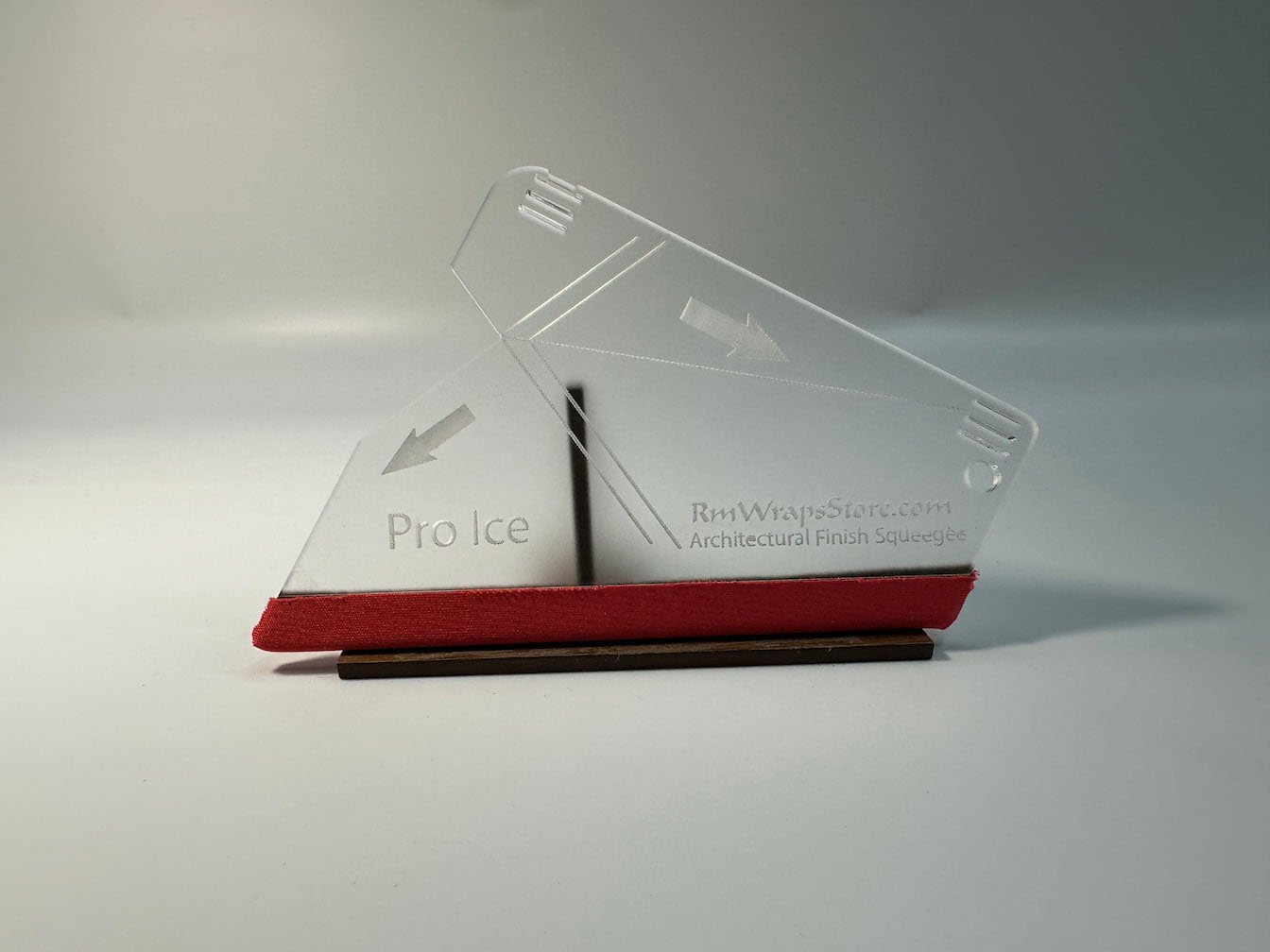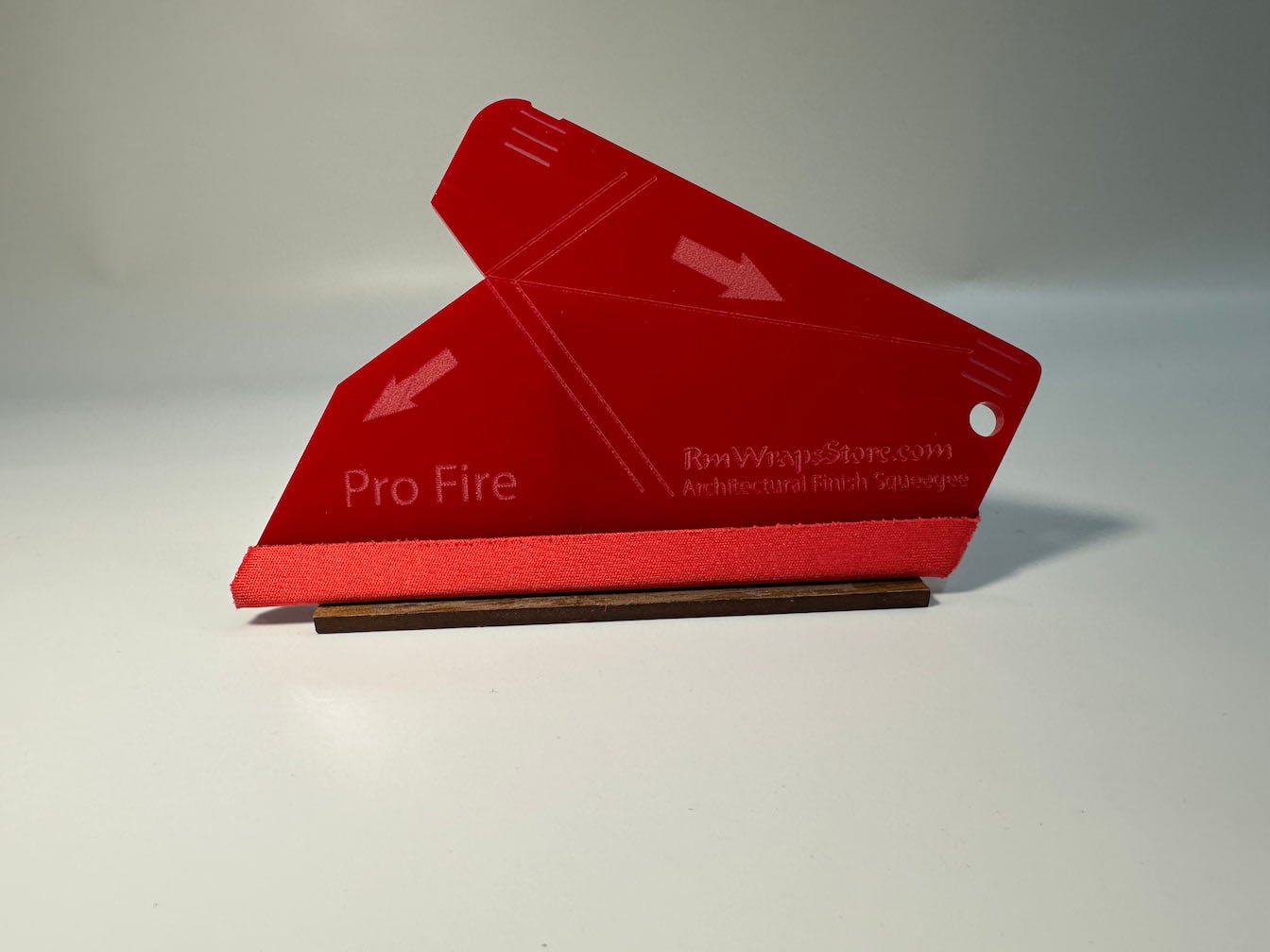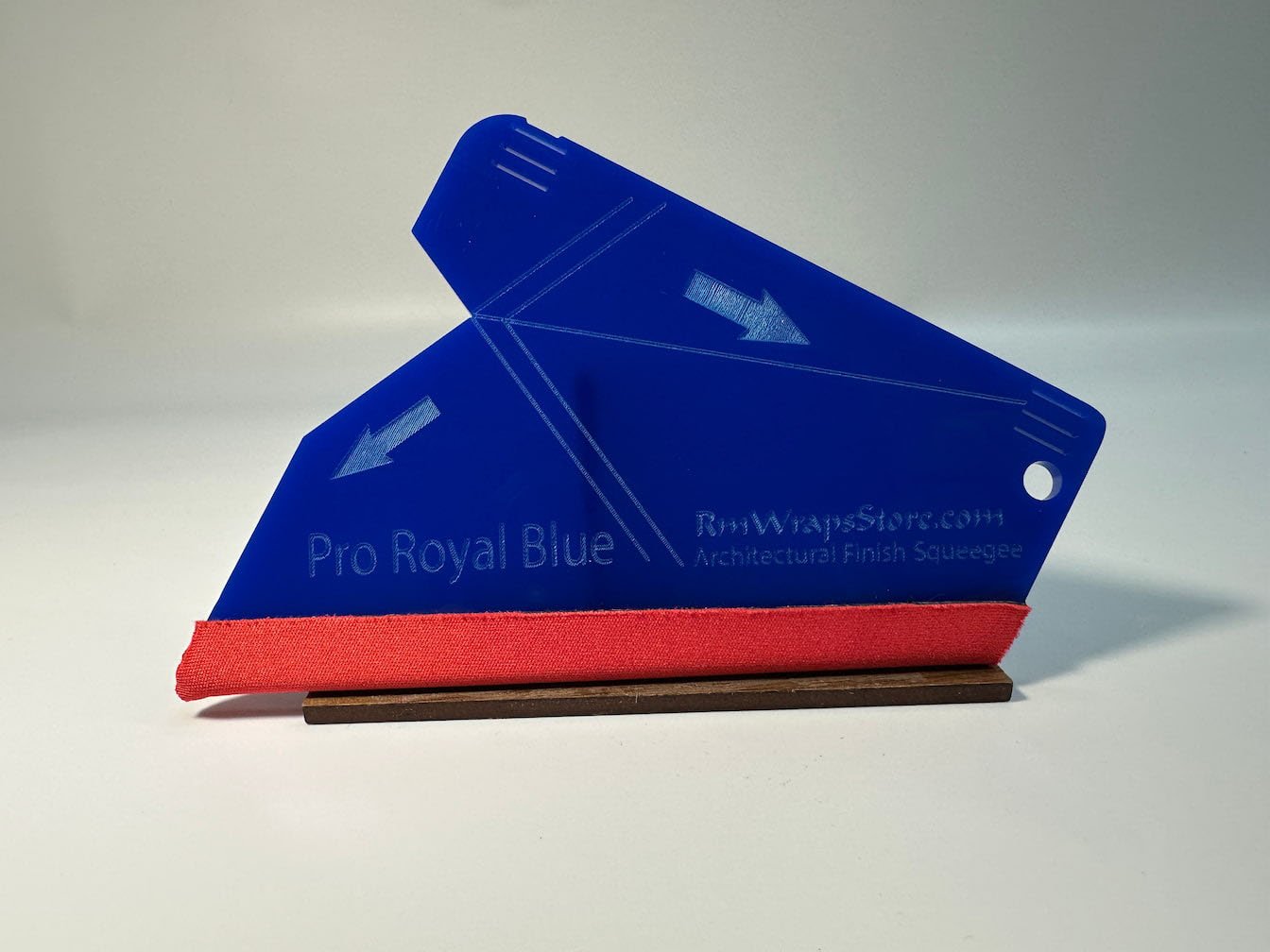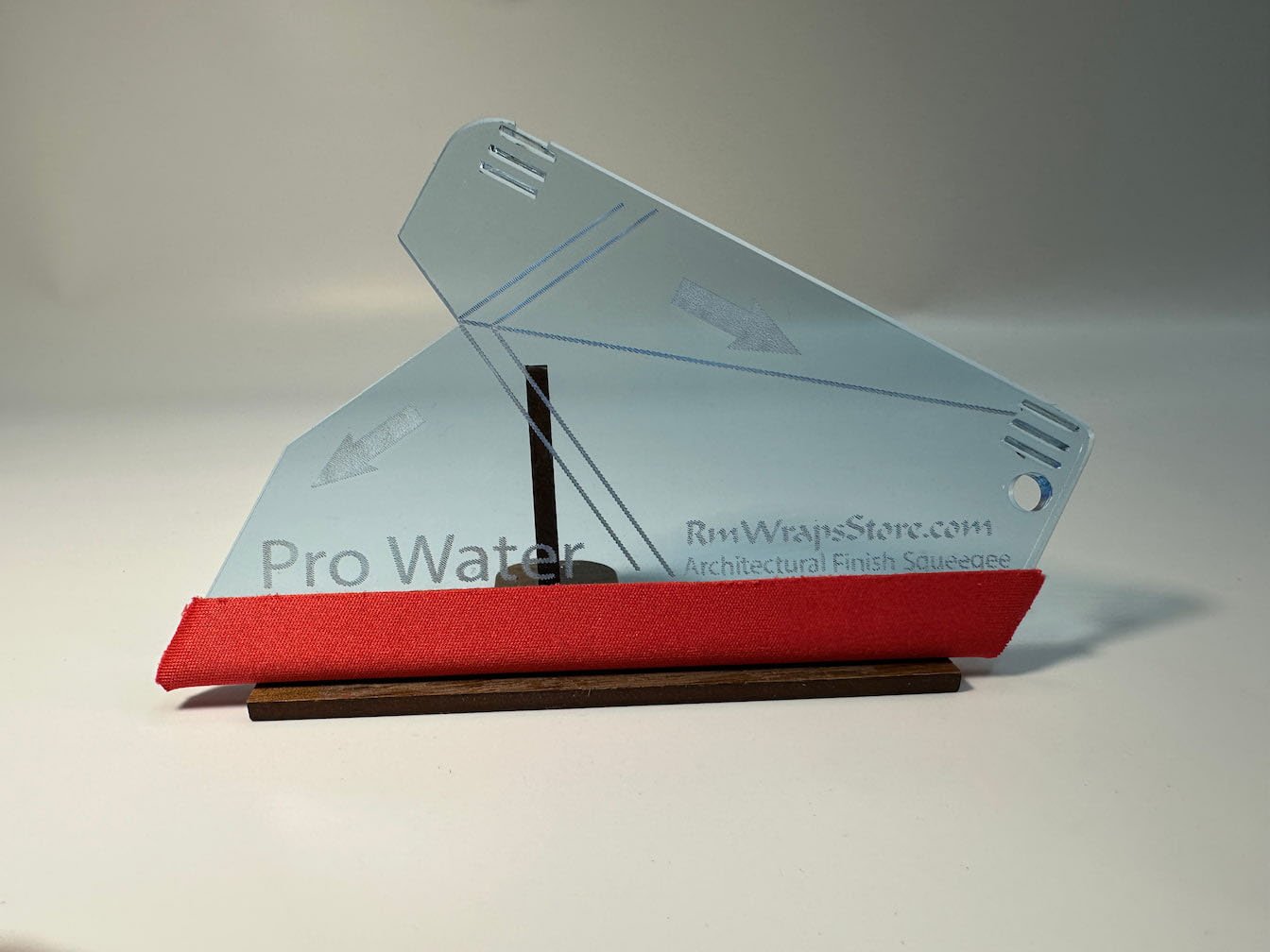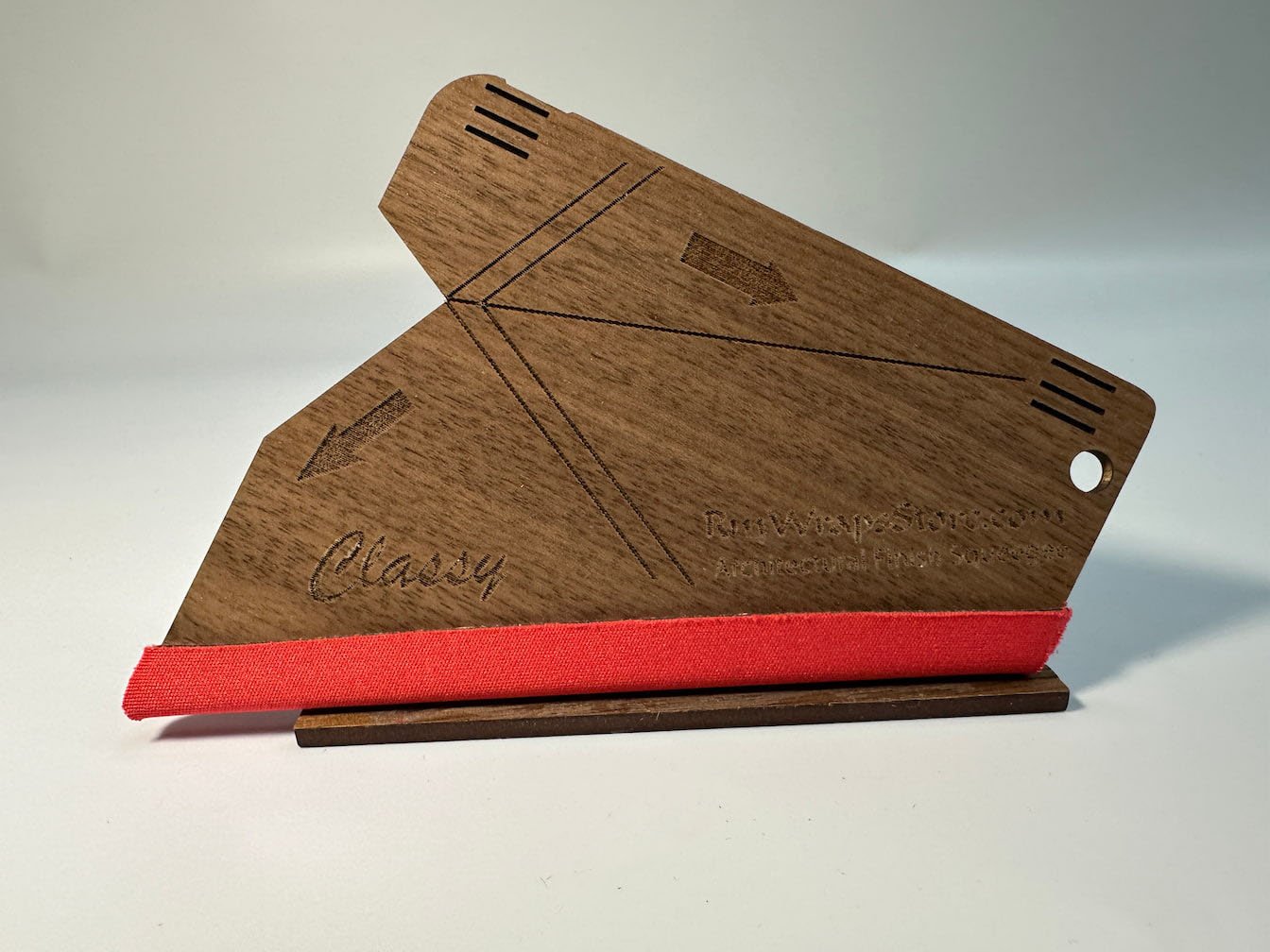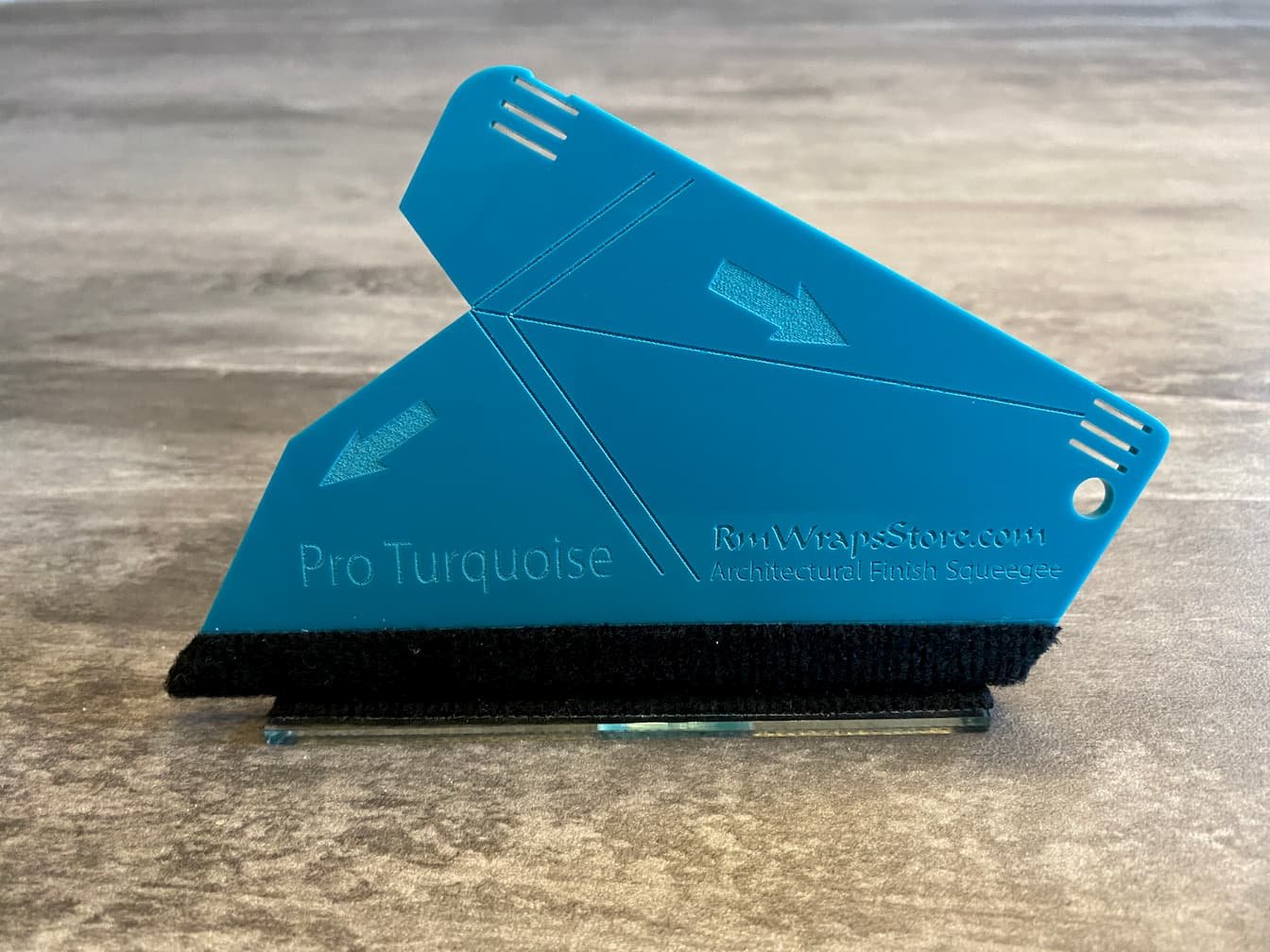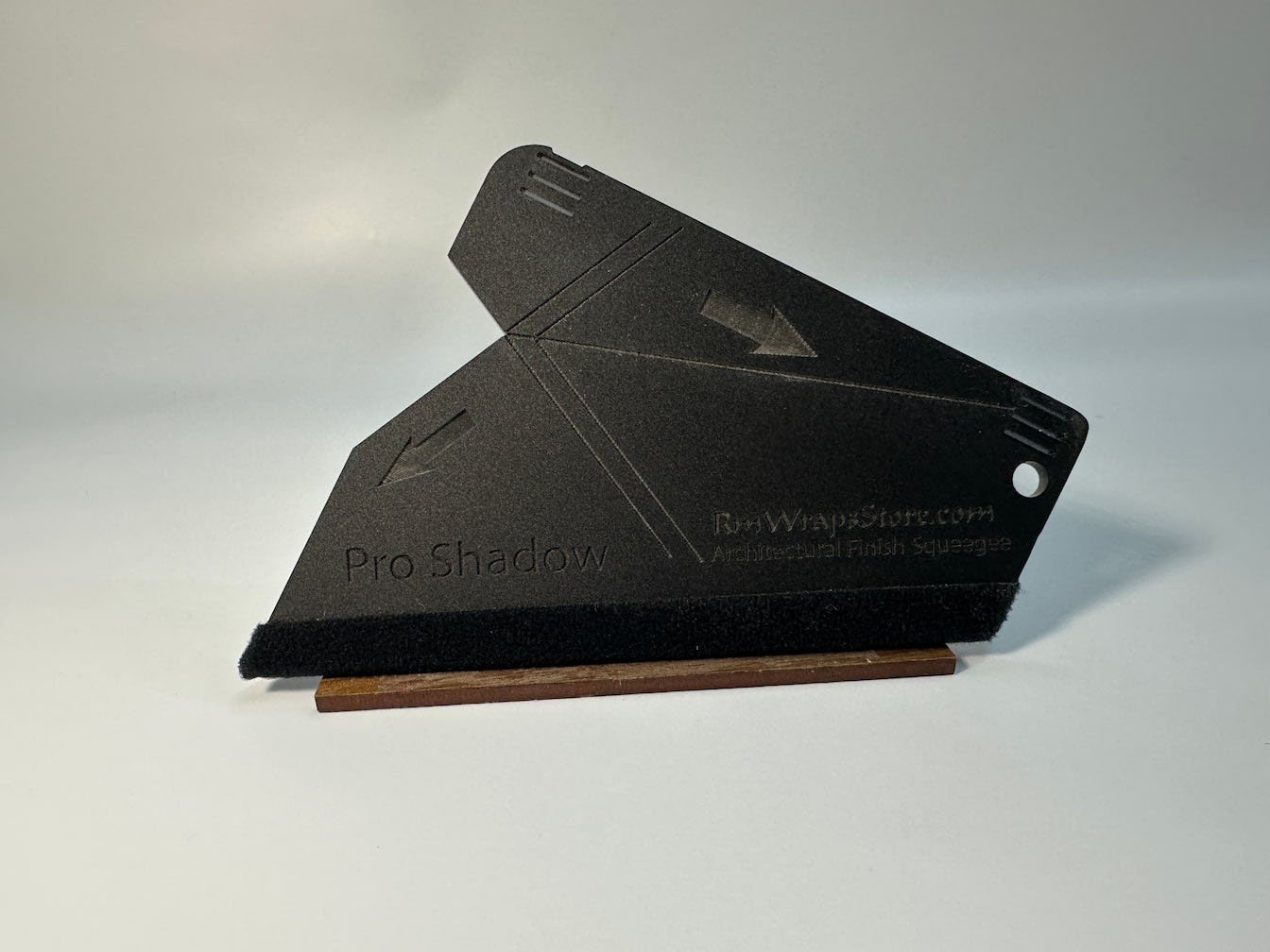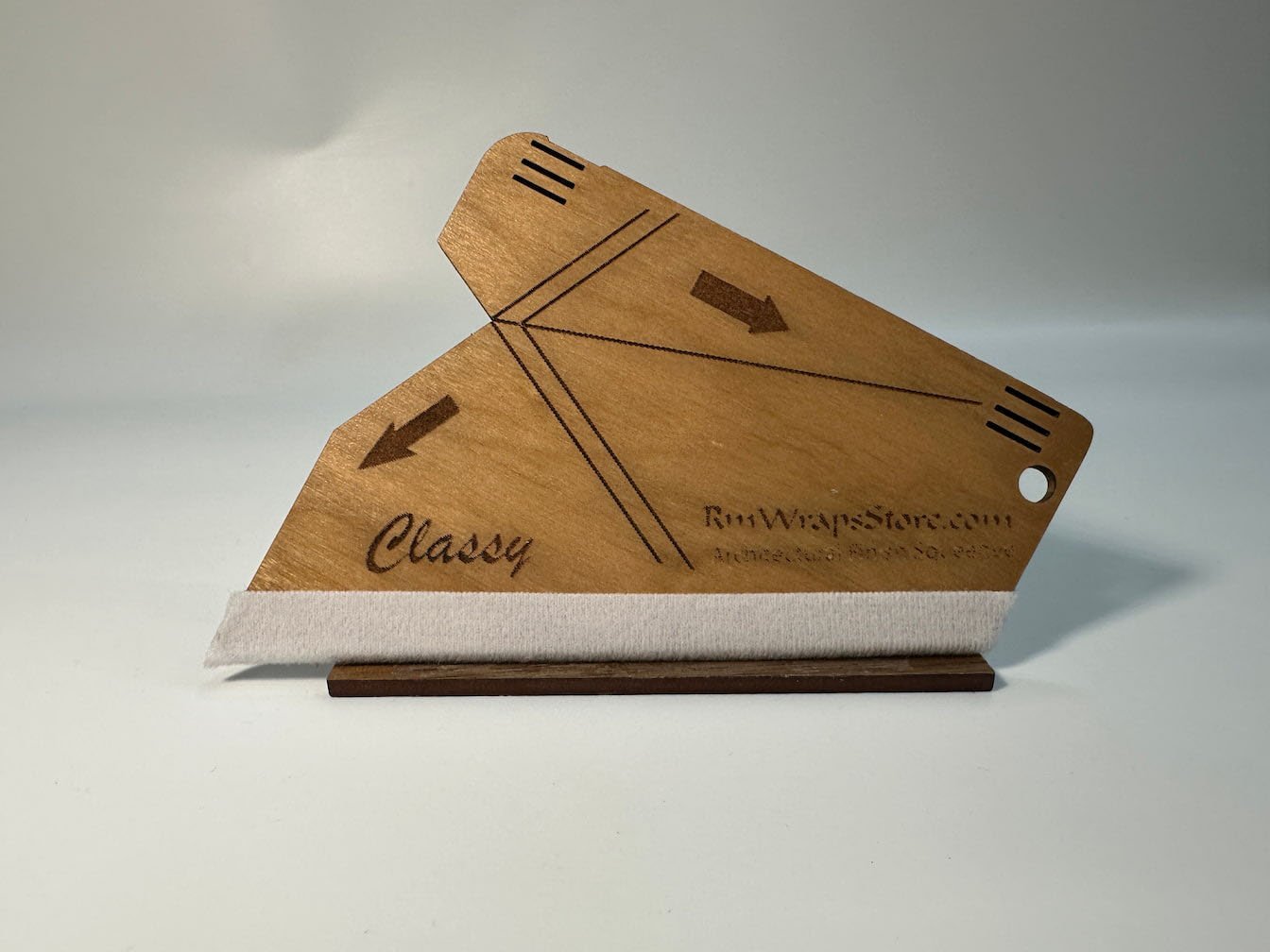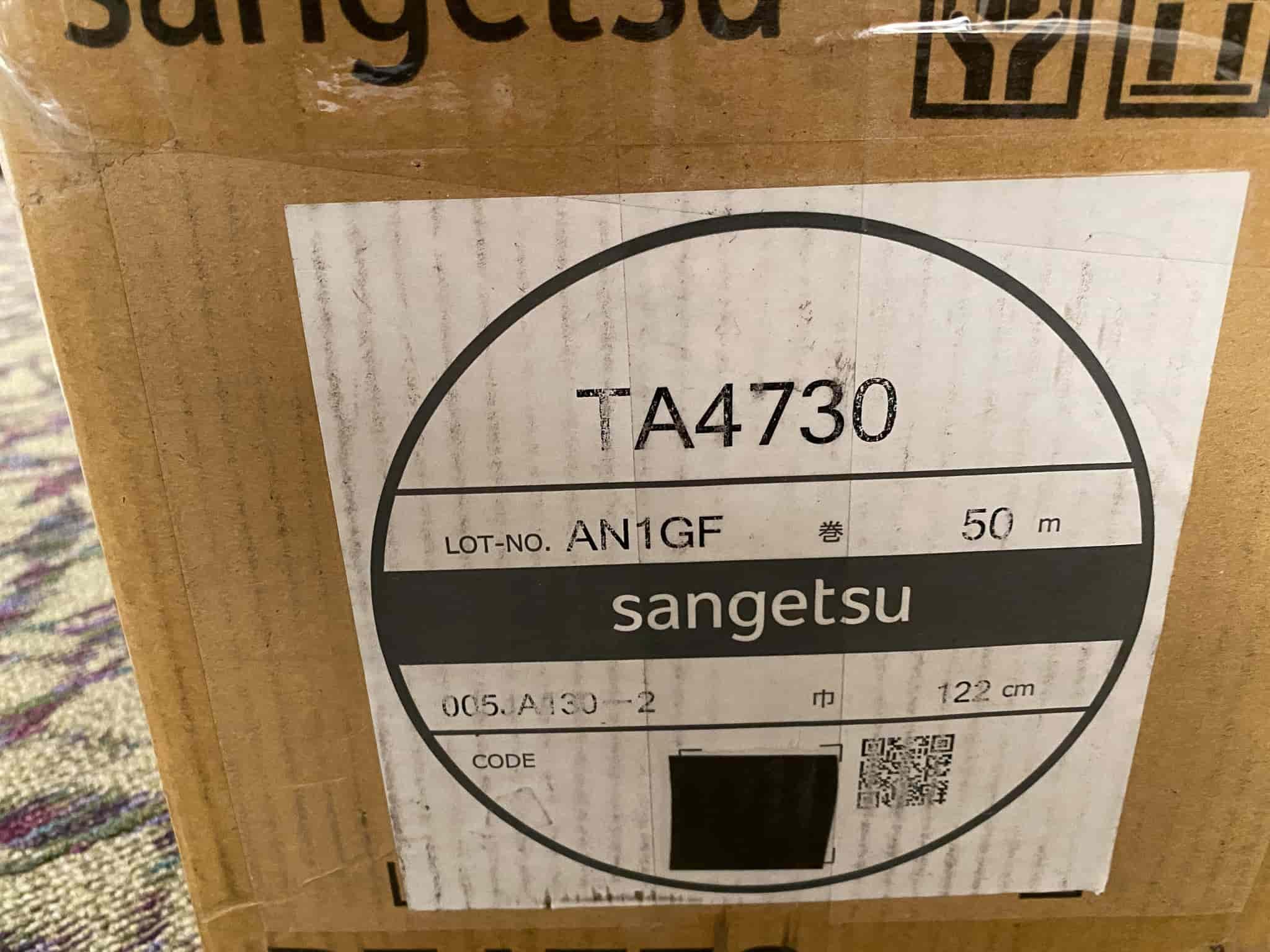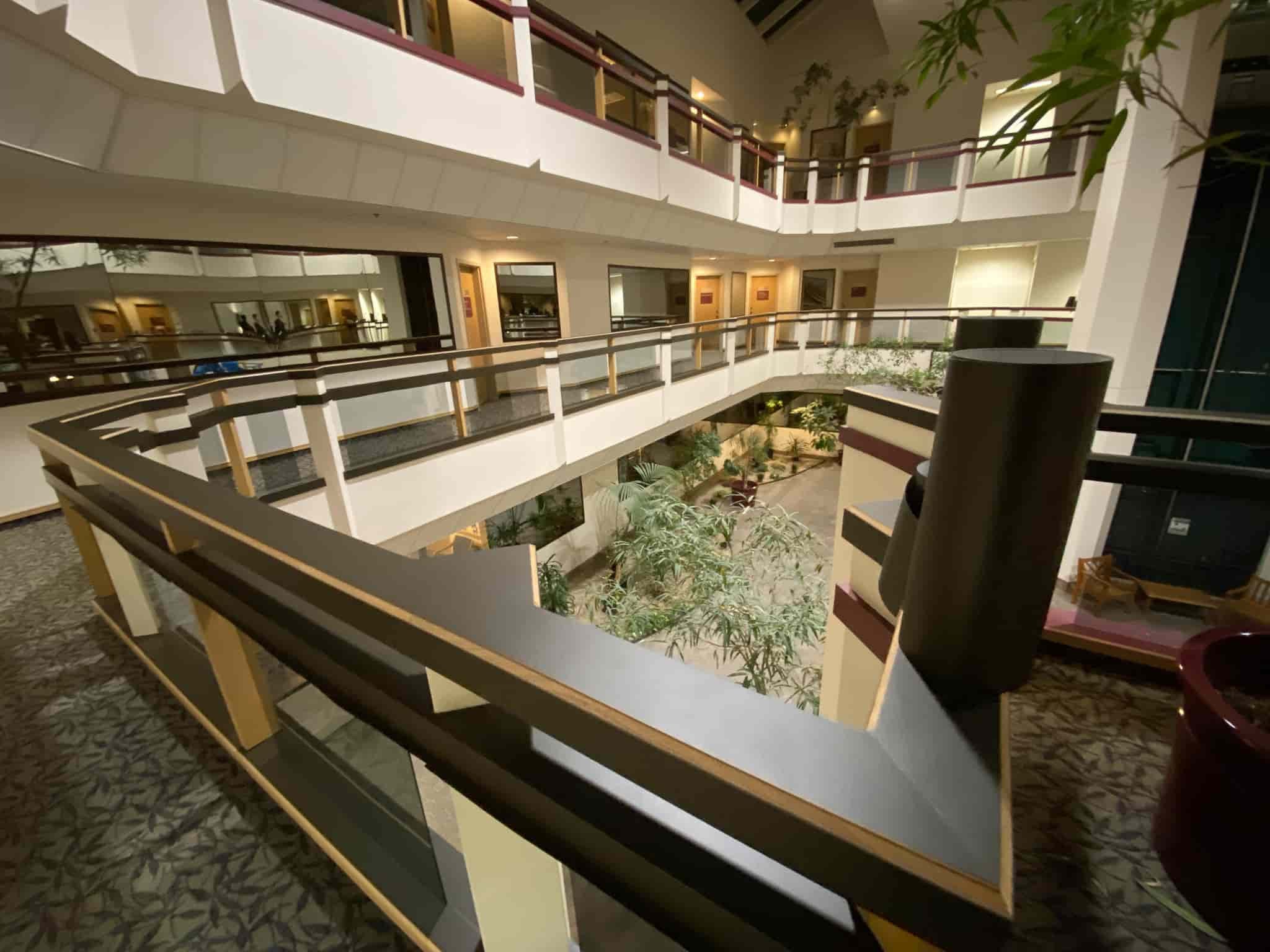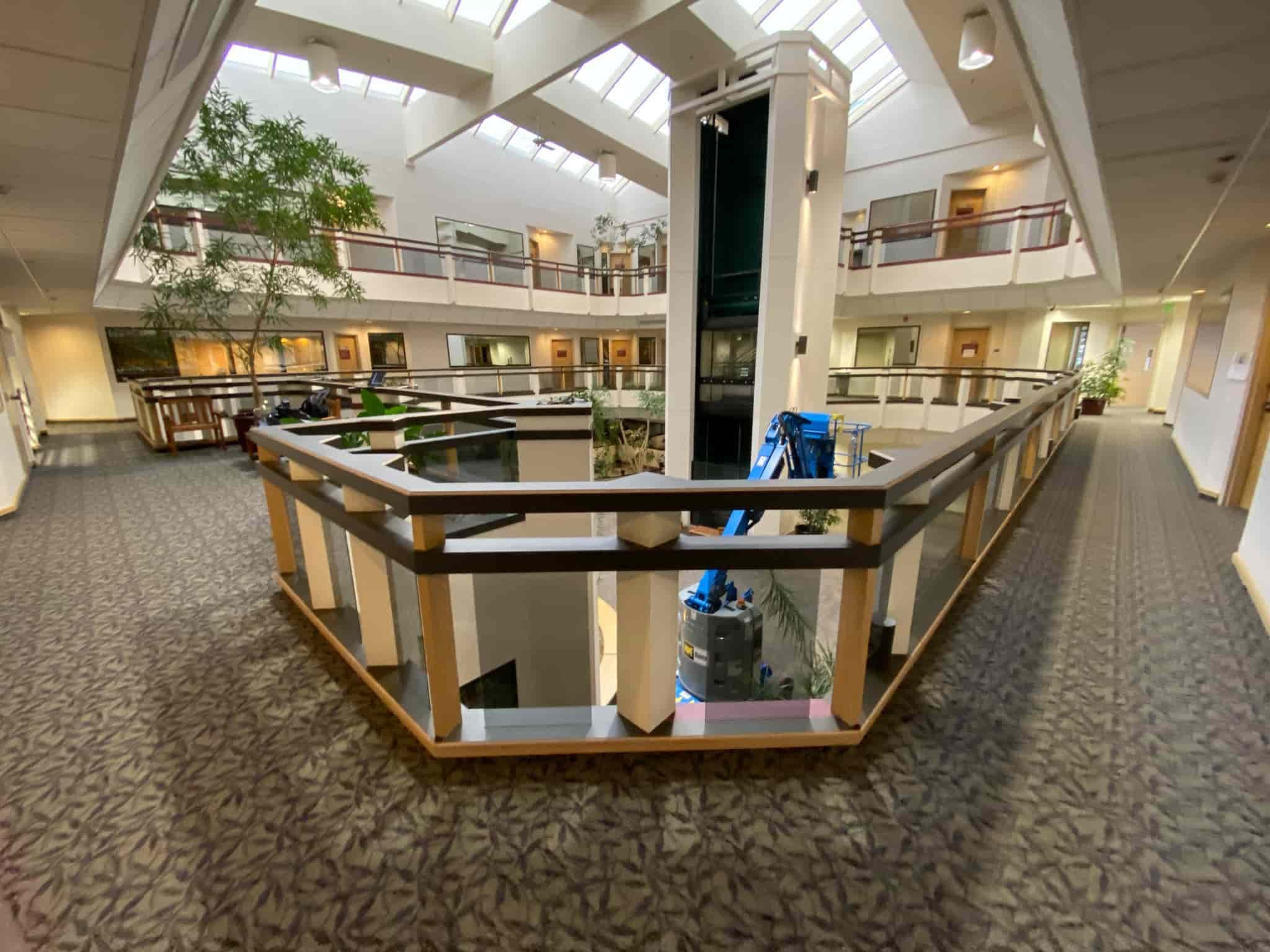Revitalizing Commercial Spaces: Resurfacing Railings with Architectural Film Vinyl
Commercial buildings often see heavy foot traffic, which can result in wear and tear on various elements of the interior. Handrails, in particular, are a crucial component of any commercial space, as they provide safety and support to occupants. Over time, these handrails can become scuffed, scratched, or simply lose their aesthetic appeal. In such cases, traditional methods of refinishing can be time-consuming and expensive. Fortunately, there's an innovative solution that's gaining popularity in the world of commercial design – architectural film vinyl.
In this blog post, we'll explore the benefits of using architectural film vinyl to resurface handrails in a commercial building. We'll discuss the advantages of this modern approach, the installation process, and some design considerations to help you transform your commercial space with ease.
Advantages of Architectural Film Vinyl
Hand railing wrapped in Architectural film
Cost-Effective: Traditional methods of resurfacing, such as sanding and painting, can be costly due to labor and material expenses. Architectural film vinyl offers a budget-friendly alternative, allowing you to achieve a fresh and stylish look without breaking the bank.
Speedy Installation: One of the most significant advantages of using architectural film vinyl is the quick and hassle-free installation. Unlike paint or other finishes that require drying time, vinyl can be applied in a matter of hours, minimizing downtime in your commercial space.
Durability: Architectural film vinyl is designed to withstand heavy traffic and resist scratches and scuffs. It provides a long-lasting solution, reducing the need for frequent maintenance.
Customization: Vinyl comes in a wide range of colors, textures, and patterns. This allows you to achieve a tailored aesthetic that aligns with your commercial space's design and branding.
Installation Process
Now that you're aware of the benefits of architectural film vinyl, let's discuss the installation process. This step-by-step guide will help you understand how to resurface handrails in your commercial building:
Surface Preparation: Ensure the handrail surface is clean, dry, and free of any dirt or contaminants. Sand down any rough areas and repair any visible damage.
Measurement and Cutting: Measure the handrail's length and cut the architectural vinyl film to the appropriate size, leaving a little extra for adjustments.
Application: Carefully apply the vinyl film to the handrail, starting at one end and gradually smoothing it out as you go along. Be sure to eliminate air bubbles and wrinkles.
Trimming: Use a utility knife to trim any excess vinyl along the edges and at the ends of the handrail for a precise fit.
Finishing Touches: Gently heat the vinyl with a heat gun to ensure it adheres securely to the handrail. Pay special attention to corners and edges for a seamless finish.
Design Considerations
When resurfacing handrails with architectural film vinyl, you have a plethora of design options to choose from. Consider the following design tips to make the most of this versatile material:
Hand railing wrapped in Architectural film
Texture: Choose from various textures, such as wood grain, metal, or leather, to enhance the tactile experience.
Color Coordination: Ensure that the color and texture of the vinyl complement the overall aesthetic of your commercial space.
Contrast: Use architectural vinyl to create striking visual contrasts, such as dark handrails on light-colored walls or vice versa.
Conclusion
Resurfacing handrails in a commercial building with architectural film vinyl is a modern, cost-effective, and efficient way to rejuvenate your space. With its quick installation process, durability, and customization options, this material offers a practical solution for property managers, business owners, and designers seeking to enhance the look and functionality of their premises. Whether you aim to refresh the aesthetics, align with your brand, or simply protect your handrails, architectural film vinyl is a versatile choice that can leave a lasting impact on your commercial space.
Watch these videos on how the project went.
Wrapping hand rails with the Architectural film video.
Wrapping hand rails with the Architectural film video.
Wrapping hand rails with the Architectural film video.
These squeegees were designed to cut down on the number of different tools needed to complete a professional architectural film installation. Several functions are built-in, minimizing time spent reaching for other tools and potential for misplacing tools in between use. Using the Micro Fiber Felt.
Designed & Made in Meridian, Idaho.






